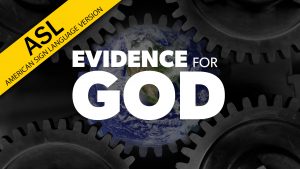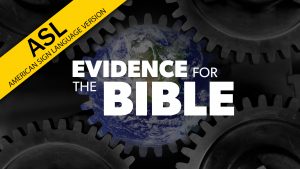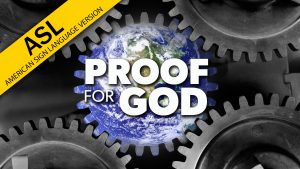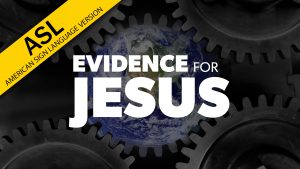-
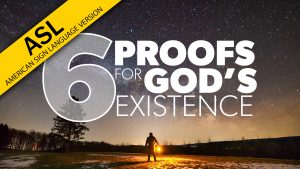
6 Proofs for God's Existence | Proof for God (ASL)
When we consider the most profound question of life, “Does God exist?” we should follow the evidence wherever it leads. In this video, Kyle Butt presents six powerful evidences proving God’s existence, from the complexity and order of our Universe to the morality, free will, and reasoning in humanity. Interpreted in American Sign Language by Michael Fehmer.
-
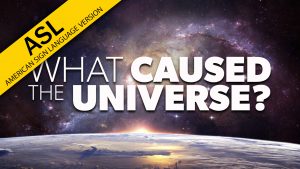
What Caused the Universe? | Proof for God
What could have caused our Universe to exist? If every material effect we see has a cause, and the Universe is material, then what caused it to exist? Follow along with Kyle Butt as he presents both the atheistic and the biblical view for the Universe's origin. Kyle evaluates the logical and scientific implications for the Universe's beginning and our existence within it. Interpreted in American Sign Language by Michael Fehmer.
-
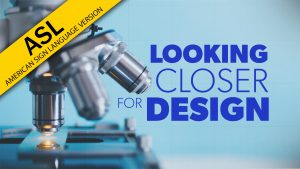
Looking Closer for Design | Proof for God (ASL)
When we look at the Universe, do we see design in its structure? Since anything that is designed requires a designer, then design in the Universe would demand a designer. Join Kyle Butt as he discusses design, fine-tuning, and order in the laws and matter in nature. Interpreted in American Sign Language by Michael Fehmer.
-
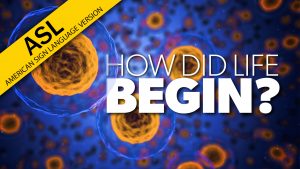
How Did Life Begin? | Proof for God (ASL)
How did life begin? If the Cosmos is all that there is, all that there was, and all that there ever will be, then how could life come from non-life? What does science have to say about this scenario, and what does the Bible have to say? Follow along with Kyle Butt as he discusses this profound question from both perspectives, including the implications from the proposed answers. Interpreted in American Sign Language by Michael Fehmer.
-
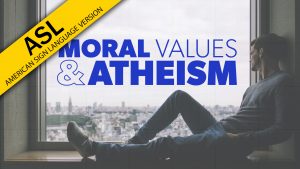
Moral Values and Atheism | Proof for God
Have you ever done anything morally right or morally wrong? The answer to this question has a serious bearing on the existence of God. If there is no God, then there cannot be anything objectively morally right or objectively morally wrong. If there are objective moral values, then God must exist. Join Kyle Butt in this video as he discusses the idea of “Moral Values and Atheism.” Interpreted in American Sign Language by Michael Fehmer.
-
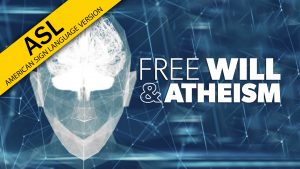
Free Will and Atheism | Proof for God (ASL)
Does free will exist, or is free will an illusion? Do you have a choice to watch this video or not? If free will exists, then how does a naturalistic or materialistic worldview explain its origin? Join Kyle Butt as he discusses the implications for atheism and God from the existence of free will. Interpreted in American Sign Language by Michael Fehmer.
-
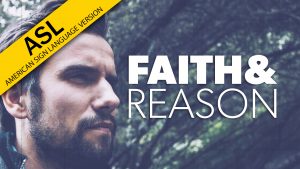
Faith and Reason | Proof for God (ASL)
What is the relationship between faith and reason? Is faith a warm, fuzzy belief without evidence? Is scientific reasoning a contrast to biblical faith? Follow along with Kyle Butt as he discusses the intersection between faith and science in view of the evidence for God. Interpreted in American Sign Language by Michael Fehmer.
-
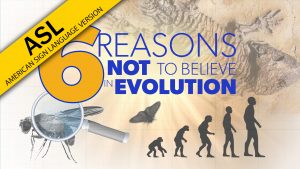
6 Reasons NOT to Believe in Evolution | Proof for God (ASL)
Some of the classic reasons given for you to believe in evolution are actually some of the best reasons NOT to believe. Follow along with Kyle Butt as he looks at vestigial organs and junk DNA, the fossil record and transitional organisms, genetic mutations, natural selection of peppered moths, and homology. Hear what evolutionists have to say about these reasons and how the evidence stacks up. Interpreted in American Sign Language by Michael Fehmer.
-
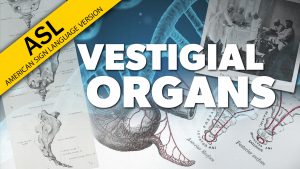
Vestigial Organs | Proof for God (ASL)
Virtually every outlet that purports to prove evolution uses an argument from vestigial organs to supposedly validate evolution. The idea is that there are certain organs in the bodies of animals and humans that are left over from a precursor organism where that organ was useful. Does this idea actually help the evolutionary theory or hurt it? In this lesson, Kyle Butt discusses some common examples of vestigial organs and the current understanding that the scientific community has about them.
Vestigial Organs | Proof for God (ASL)
Description
Virtually every outlet that purports to prove evolution uses an argument from vestigial organs to supposedly validate evolution. The idea is that there are certain organs in the bodies of animals and humans that are left over from a precursor organism where that organ was useful. Does this idea actually help the evolutionary theory or hurt it? In this lesson, Kyle Butt discusses some common examples of vestigial organs and the current understanding that the scientific community has about them.





